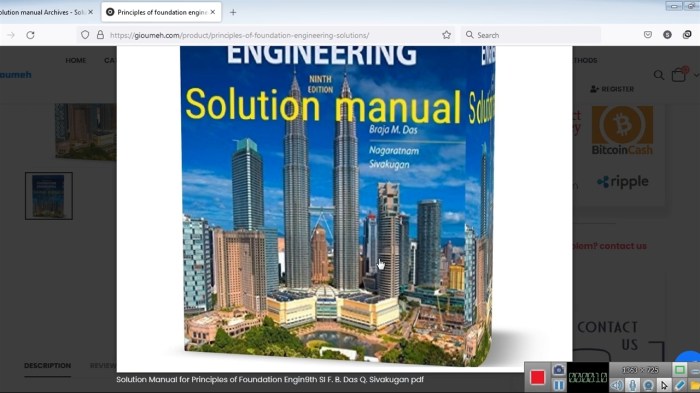The Events Industry Council Manual 9th Edition is the gold standard for event planning, providing a comprehensive roadmap for event professionals to deliver exceptional events. This manual empowers planners with the knowledge and tools to navigate the complexities of event planning, ensuring successful outcomes.
Throughout this exploration, we will delve into the key principles, guidelines, and best practices Artikeld in the EIC Manual 9th Edition, equipping you with the expertise to plan and execute flawless events.
Industry Standards and Best Practices

The Events Industry Council (EIC) Manual 9th Edition is the definitive guide to event planning, providing a comprehensive framework for professionals in the field. It establishes industry standards, best practices, and guidelines that ensure the successful planning and execution of events.
The manual covers a wide range of topics, including event planning, execution, marketing, budgeting, and sustainability. Its recommendations are based on extensive research and the collective experience of industry experts.
Key Principles and Guidelines
- Plan events with a clear purpose and objectives.
- Develop a comprehensive event plan that Artikels all aspects of the event.
- Manage event budgets effectively.
- Create a safe and enjoyable experience for attendees.
- Measure the success of events and use feedback to improve future events.
Benefits of Using the Manual
- Enhanced event planning and execution.
- Improved risk management and contingency planning.
- Increased attendee satisfaction.
- Improved event ROI.
- Enhanced professional credibility.
Planning and Execution: Events Industry Council Manual 9th Edition

The EIC Manual 9th Edition Artikels a step-by-step process for event planning and execution.
Steps Involved in Event Planning
- Identify event goals and objectives.
- Determine target audience.
- Develop an event budget.
- Select an event date and location.
- Create an event plan.
- Secure vendors and partners.
- Promote the event.
- Manage event logistics.
- Execute the event.
- Evaluate the event.
Roles and Responsibilities
- Event planner: Overall responsibility for planning and executing the event.
- Event manager: Manages the day-to-day operations of the event.
- Event coordinator: Assists the event planner and manager with various tasks.
- Vendors: Provide goods and services for the event.
Risk Management and Contingency Planning
Risk management is essential to ensure the safety and success of an event. The EIC Manual 9th Edition provides guidance on identifying, assessing, and mitigating risks.
Contingency planning involves developing backup plans for potential disruptions or emergencies. The manual recommends creating contingency plans for weather, transportation, security, and other potential issues.
Event Types and Formats

The EIC Manual 9th Edition identifies different types of events and their unique characteristics.
Types of Events, Events industry council manual 9th edition
- Conferences: Large gatherings focused on education and networking.
- Trade shows: Exhibitions where businesses showcase their products and services.
- Meetings: Smaller gatherings for collaboration and decision-making.
- Incentive events: Rewards for employees or customers.
- Social events: Gatherings for entertainment and networking.
Event Formats
- In-person events: Traditional events held at a physical location.
- Virtual events: Held online through video conferencing or other platforms.
- Hybrid events: A combination of in-person and virtual elements.
Advantages and Disadvantages of Event Formats
| Format | Advantages | Disadvantages |
|---|---|---|
| In-person | Increased attendee engagement, networking opportunities | Higher costs, logistical challenges |
| Virtual | Lower costs, accessibility | Reduced attendee engagement, technical issues |
| Hybrid | Benefits of both in-person and virtual formats | Increased complexity, coordination challenges |
Venue Management
The EIC Manual 9th Edition provides guidance on selecting and managing event venues.
Factors to Consider When Selecting a Venue
- Location and accessibility.
- Capacity and layout.
- Amenities and services.
- Cost and availability.
- Reputation and experience.
Responsibilities of Venue Managers
- Maintain the venue and its facilities.
- Coordinate with event planners to ensure smooth event execution.
- Provide event support services.
- Enforce venue policies and regulations.
Responsibilities of Event Planners
- Select and negotiate with venues.
- Plan event logistics in coordination with the venue.
- Comply with venue policies and regulations.
Best Practices for Venue Negotiation and Contracting
- Negotiate a fair and equitable contract.
- Clearly define the roles and responsibilities of each party.
- Secure insurance and liability coverage.
- Plan for contingencies and unexpected circumstances.
Vendor Management

The EIC Manual 9th Edition emphasizes the importance of vendor selection and management.
Types of Vendors Involved in Event Planning
- Caterers: Provide food and beverage services.
- Decorators: Enhance the event’s ambiance.
- Entertainment: Provide entertainment for attendees.
- Transportation: Provide transportation services for attendees.
- Tech vendors: Provide event technology solutions.
Importance of Vendor Selection and Management
- Ensures quality and reliability of services.
- Controls event costs and expenses.
- Builds strong relationships with industry partners.
Tips for Effective Vendor Communication and Collaboration
- Communicate clearly and concisely.
- Establish clear expectations and timelines.
- Be responsive and accessible.
- Foster a collaborative relationship.
- Evaluate vendor performance regularly.
General Inquiries
What is the significance of the Events Industry Council Manual 9th Edition?
The EIC Manual 9th Edition is the industry-recognized standard for event planning, providing comprehensive guidelines and best practices to ensure successful event execution.
What are the key principles Artikeld in the EIC Manual 9th Edition?
The manual emphasizes risk management, stakeholder collaboration, effective communication, and sustainability, among other essential principles.
How can the EIC Manual 9th Edition enhance event planning?
By following the guidelines in the manual, event planners can improve event quality, reduce risks, optimize resource allocation, and deliver exceptional attendee experiences.